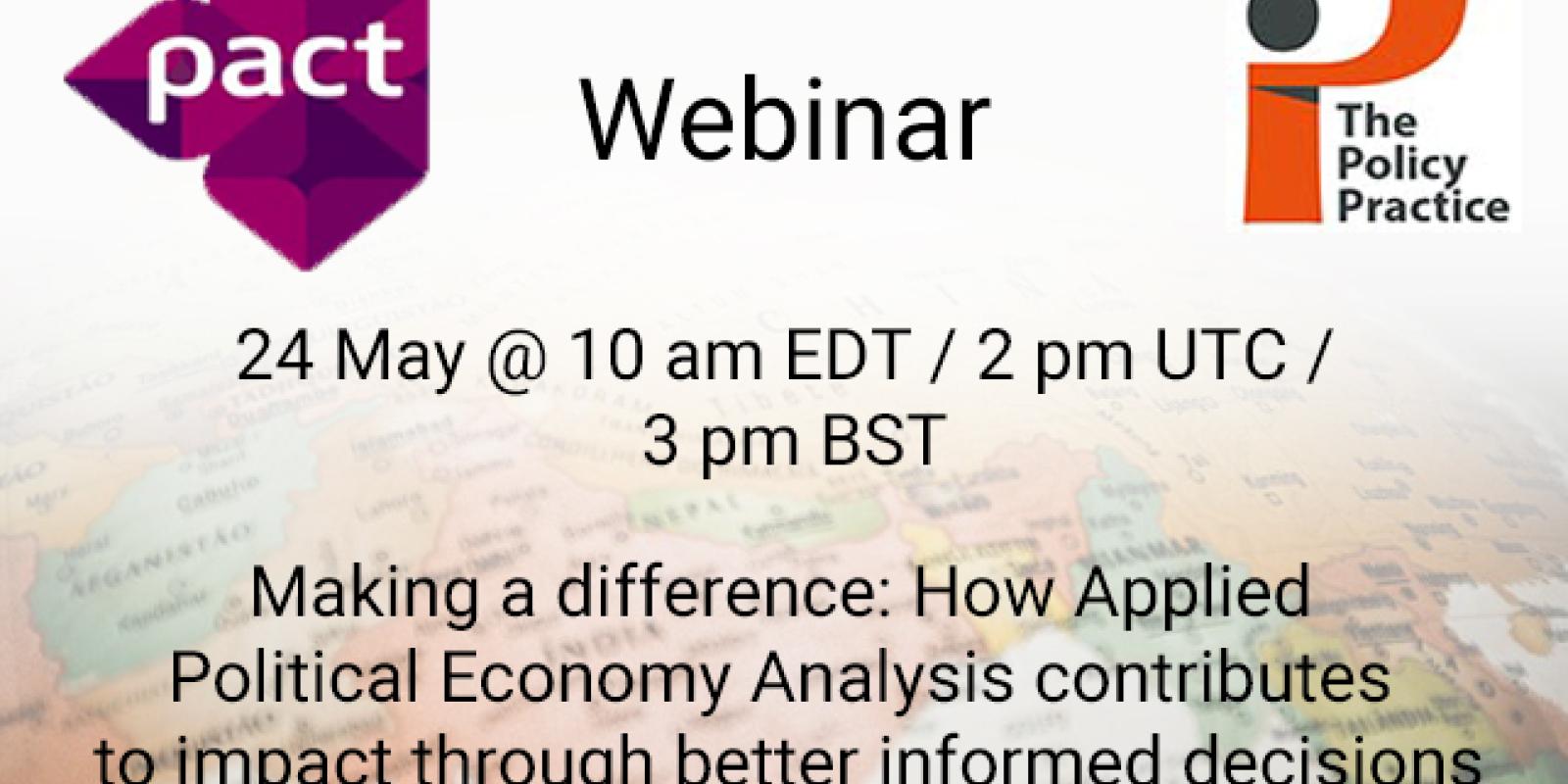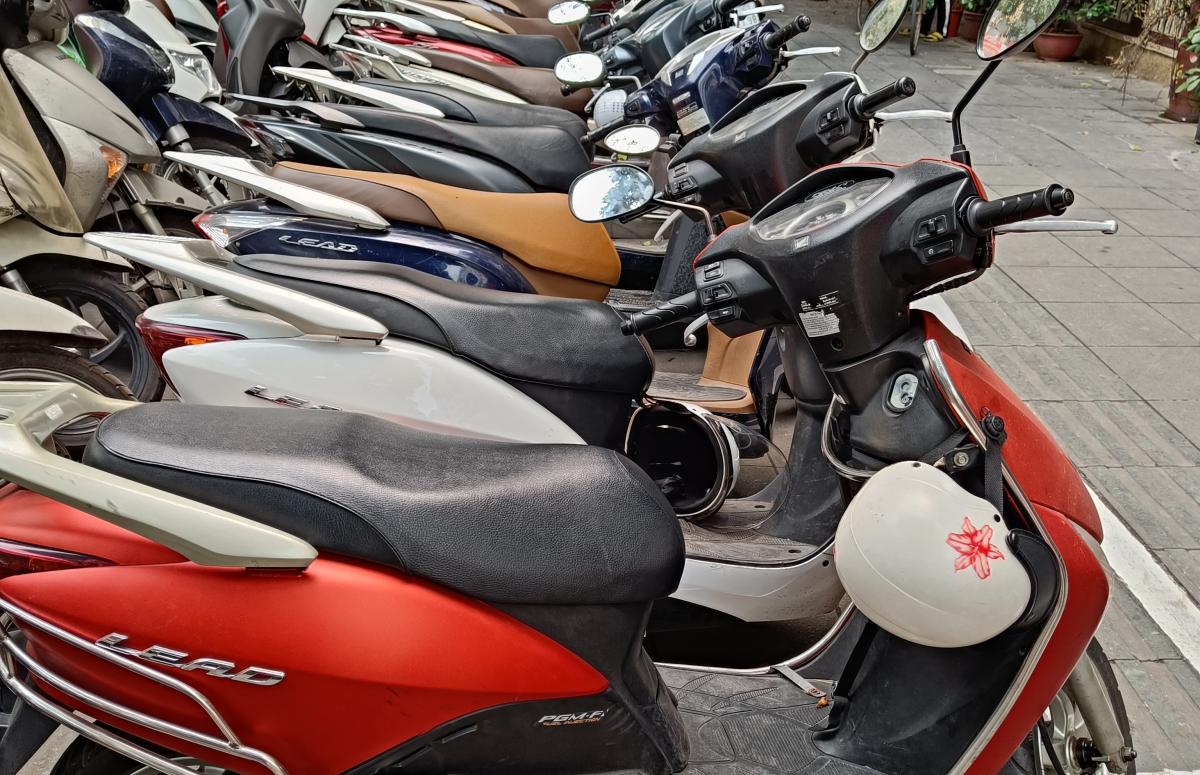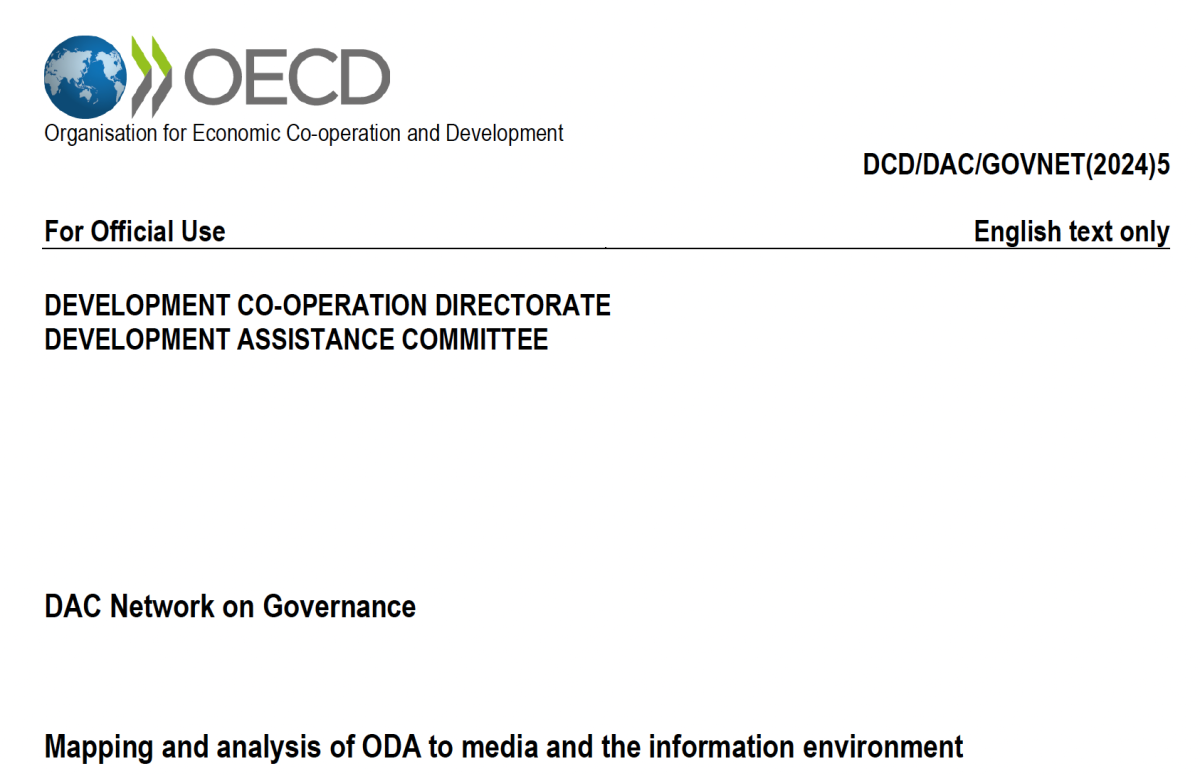
Making a difference: How Applied Political Economy Analysis contributes to impact through better informed decisions
When: 24/05/2023, 10:00 am to 11:30 am EDT, 15:00 to 16:30 BST
How does Applied Political Economy Analysis (APEA) help us to inform choices about our programmes, and what difference does that make to the kind of impact we hope to achieve? Through the Human Rights Support Mechanism (HRSM) Leader with Associates Award, Pact commissioned a Learning Review from The Policy Practice to explore these questions, looking at three different projects in Tanzania, Colombia and Somalia.
Speakers:
- Alina Rocha Menocal, Principal, The Policy Practice, and Director, Thinking and Working Politically Community of Practice, University of Birmingham
- Laure-Hélène Piron, Director, The Policy Practice
- Laura Pavlovic (Discussant), Deputy Director, Democracy, Rights and Governance Center in USAID/Washington
- Adam Lingson (Discussant), Project Management Specialist, USAID/Tanzania
The full report can be read here.
Political economy analysis for climate action - new course launched starting October 2024
The Policy Practice is delighted to be re-running the popular online course on Political Economy Analysis for Climate Action. This course explains how political economy analysis can be used to understand the challenge of action on climate change and to design more effective interventions. The course will consist of eight, 2-hour online sessions from 4 October to 12 November 2024. For more information and to register please click below or see our flyer here.
The political economy of energy transitions in Ghana, Zambia and Vietnam - Policy Brief 17
Written by Sam Bickersteth with Neil McCulloch and Meron Tesfamichael, this policy brief draws out some of the common constraints hindering the energy transition in Ghana, Zambia, and Vietnam and many other countries in the Global South. It also shows how political economy analysis can help to identify politically feasible pathways of change in each country demonstrating the importance of such analysis as an essential tool to understand energy transition.
Media support: aid funding does not match donor rhetoric
Laure-Hélène Piron (TPP Director) presented her analysis of official development assistance to media and the information environment to the Governance Network of the OECD Development Assistance Committee on 6 March 2024.
The draft report shows that the rhetoric of governments which support freedom of expression and condemn disinformation is not matched by sufficient funding. And too little directly goes to local media organisations.



